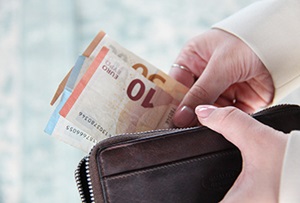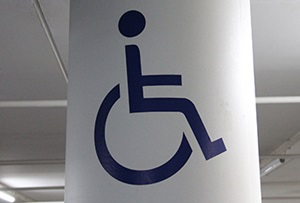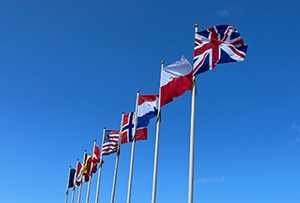What important tax proposals for entrepreneurs did the caretaker Minister of Finance pull from his briefcase on Prince’s Day? An explanation of the ten most important ones is provided below.
1. Untaxed homeworking allowance of € 2
From 1 January 2022 you can grant your employees an untaxed homeworking allowance of up to € 2 per day. This amount is based on a calculation by Nibud (National Institute for Family Finance Information) of the average additional costs incurred, e.g. for coffee and heating, for each day worked at home. Under certain conditions it was already possible to grant an untaxed allowance for setting up a home workstation. An untaxed travel allowance of up to € 0.19 per kilometre for commuting also remains in place for days when the employee travels to the office.
Please note: The travel allowance of € 0.19 may not be awarded to employees on days when they are working from home.
 That means that if you pay a homeworking and travel allowance, you must always determine the allowance on a per-day basis. You can also opt to follow a practical scheme that has been approved by the legislator.
That means that if you pay a homeworking and travel allowance, you must always determine the allowance on a per-day basis. You can also opt to follow a practical scheme that has been approved by the legislator.
2. Share options for employees become more attractive
Paying employees in the form of share options is becoming more attractive. This will allow start-ups and scale-ups to attract talent more easily, for example, and boost new business development in the Netherlands.
At present, tax is paid on share options when the option right received is converted into shares. The downside of levying tax at this moment is that employees (and the employer) pay tax immediately, even though they are not always able to sell the shares yet or do not always have sufficient funds to pay the tax.
From 1 January 2022 employees can decide for themselves when the tax is levied:
- when the shares become marketable and funds are therefore available, or:
- when the options are converted into shares (current arrangement).
3. Reduction in customary salary for innovative start-ups extended by a year
In 2022 it will remain possible for directors/major shareholders (DGAs) of innovative start-ups to apply a reduction to their customary salary. This will help to improve the liquidity position of these DGAs. Originally, this scheme was due to expire on 1 January 2022, but this end date has been pushed back one year.
4. Environmental investment deduction (MIA) to be increased
For a number of years now the government has been encouraging companies to invest in innovative, environmentally friendly assets by means of the environmental investment deduction (MIA). The MIA allows companies to deduct a percentage of the investment costs from their taxable profit. That means they pay less income or corporation tax.
From 1 January 2022 the percentages are being increased, entitling companies to a higher deduction. Making environmentally friendly investments is therefore becoming more attractive. Three percentages currently apply to the MIA: 13.5%, 27% and 36%. From 1 January 2022 these will be raised to 27%, 36% and 45%.
Tip: Consider postponing your environmentally friendly investments until 2022!
Which percentage applies to an environmentally friendly asset is indicated on the Environmental List (Milieulijst). The Netherlands Enterprise Agency (RVO) updates the Environmental List at the end of each year. In combination with the Vamil (arbitrary depreciation of environmental investments) scheme your net tax benefit can rise to over 14% of the investment amount.
5. Purchase of zero-emission cars encouraged
The government wants to continue to encourage the purchase of zero-emission cars, even though this is costing it more than expected. It is therefore making the following proposal:
- The addition to taxable income for private use of a zero-emission company car will be lowered, as agreed in the Climate Agreement. In 2022 a 6% discount will apply, which means the addition to taxable income will be 16% (normal rate is 22%).
- The list price on which the discounted addition to taxable income is applied in the case of zero-emission cars will be lowered. In 2022 this will be € 35,000 and from 2023 € 30,000.
- The budget of the subsidy scheme for zero-emission vans and private cars will be increased.
6. Restrictions to income-dependent combination tax credit (IACK)
The tax plans include two proposals relating to the income-dependent combination tax credit (IACK):
- The government is proposing to reduce the maximum IACK by € 318 per year from 1 January 2022 (in 2022 the IACK will amount to a maximum of € 2,534 and in 2021 a maximum of € 2,815).
- Foreign taxpayers with a partner currently qualify for the income-dependent combination tax credit, even though that is not always the intention. This is the case, for example, for people who work in the Netherlands, but live abroad with a non-working spouse and a child under the age of 12. From 1 January 2022 the government wants to change how the IACK is awarded in the case of foreign taxpayers by ceasing to apply the exception to the concept of ‘tax partner’ to the IACK.
7. No surprises in the area of income and corporation tax rates
Income tax rates will remain the same as proposed in last year’s tax plan. They will therefore be as follows in 2022:
| Income tax rate/national insurance contributions for 2022 | |||
| Taxable income of more than (€) |
but no more than (€) |
Rate for 2022 (%) | |
| 1st band | – | 69,398 | 37.07 |
| 2nd band | 69,398 | – | 49.50 |
The corporation tax rate for 2022 will also remain as previously announced:
| Corporation tax | 2021 | 2022 |
| Profit up to € 245,000/€ 395,000 | 15.0% | 15.0% |
| Profit above € 245,000/€ 395,000 | 25.0% | 25.0% |
8. Change to offsetting of advance corporation tax
In a judgment the EU Court of Justice has ruled that domestic and foreign companies must be treated equally. In the Netherlands too, domestic companies are treated differently from foreign companies when it comes to refunding forms of advance corporation tax, such as dividend tax. To bring Dutch legislation into line with EU law, the government is proposing the following:
- Companies will be able to offset dividend tax and gambling tax that has been paid in advance only with corporation tax that is due. Refunds will therefore no longer be paid.
- The company may offset these advance levies with the corporation tax it owes in a subsequent year. It does not have to do so immediately in the following year.
- Any advance levies that have not been offset may be carried forward to subsequent years without restriction.
9. Three changes to homeownership scheme
Three changes are being made to the homeownership scheme with effect from 1 January 2022. The scheme is being made fairer by removing unintended restrictions on mortgage interest relief.
To eliminate these restrictions, changes are therefore being made in relation to the home equity reserve, the repayment balance and the existing home acquisition debt (this is a loan taken out to purchase your own home before 1 January 2013).
10. Transfer tax in the event of unforeseen circumstances
Since 1 January 2021 first-time buyers under the age of 35 have not paid any transfer tax when purchasing their home (one-off exemption). Buyers aged 35 and over who will be living in the property themselves have paid 2%, while buyers who will not be residing in the property themselves have paid 8%. Under the government’s proposal, buyers will not automatically be subject to the general rate (8%) if unforeseen circumstances arise after the purchase, but before the transfer. Certain conditions must be met, however.


